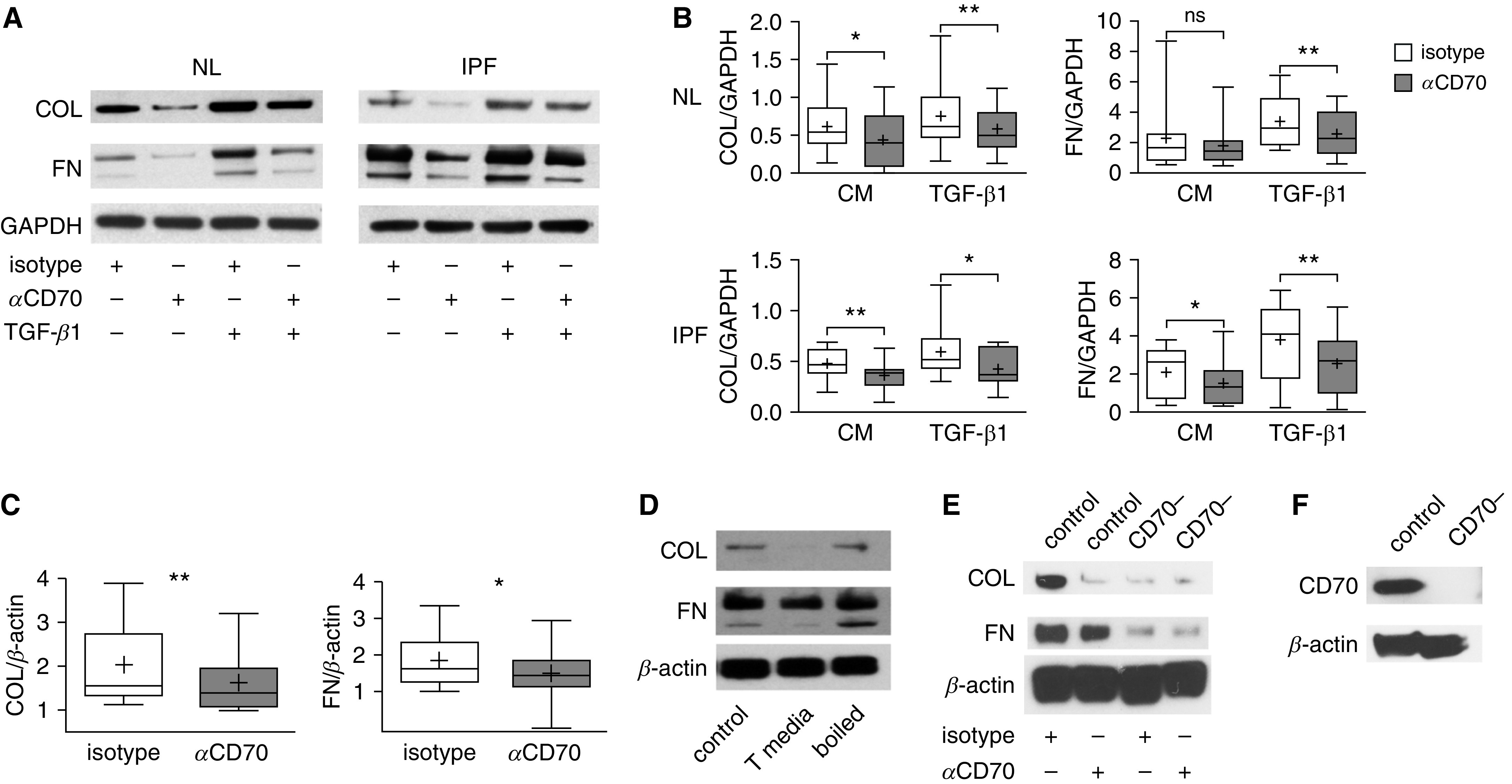Figure 3.

Fibroblast CD70 activation decreases extracellular matrix (ECM) production. (A) Representative immunoblots of fibroblasts from NL or IPF lungs (IPF) after 24 hours of CD70 monoclonal antibody or control isotype treatments (both were cross-linked by secondary antibodies). The anti-CD70 antibody treatment reduced production of pro-COL (pro–collagen I, α1 chain) and FN (fibronectin) compared with the same treatment with control isotype antibody, and it also attenuated the profibrotic effects of TGF-β1 (2 ng/ml). (B) Densitometric quantification of IB from 10 NL donors and 10 IPF lungs (ECM protein concentrations normalized to housekeeping protein) after 24-hour treatment with anti-CD70 antibodies or isotype control antibodies in the presence of TGF-β1 or control unstimulated complete medium (CM). *P < 0.05 and **P < 0.01. The lowest, second lowest, middle, second highest, and highest lines represent 10th, 25th, median, 75th, and 90th percentiles, respectively. Mean is denoted by (+). (C) RT-PCR assay showed decreases in COL and FN mRNA concentrations 12 hours after CD70 activation. (D) T-cell conditioned medium (T media) also reduced fibroblast ECM protein compared with effects of CM (control) or T-cell conditioned medium that had been denatured by boiling. (E) CD70 shRNA-transfected fibroblasts (CD70−) were resistant to the effect of anti-CD70 activation for 24 hours, whereas fibroblasts transfected with a scrambled sequence (control) still exhibited the same ECM reduction as wild-type cells. (F) IB confirmed the efficiency of CD70 knockdown in a stable CD70 shRNA-transfected fibroblast line. Data are representative of three independent experiments.
